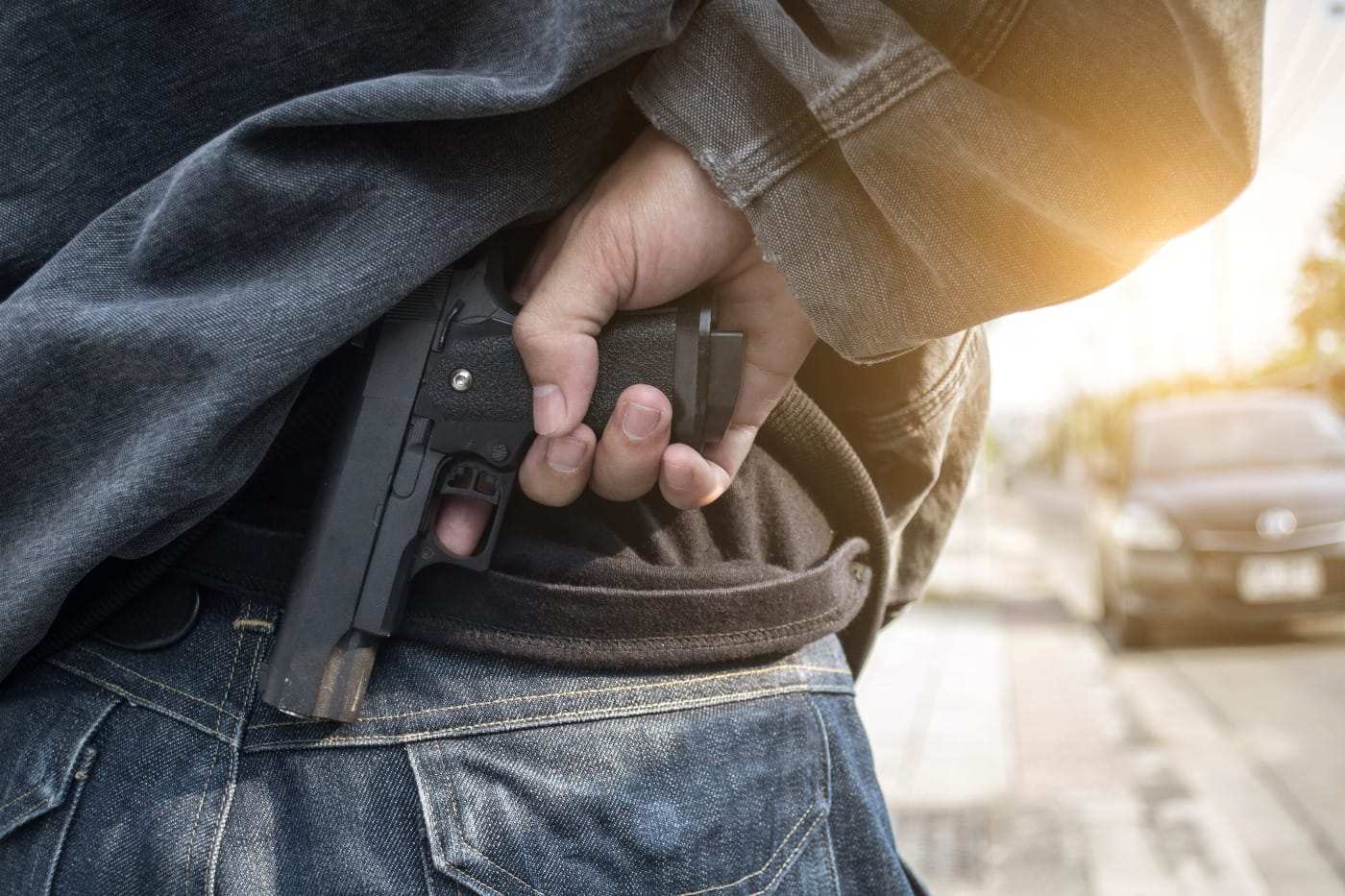
Getting Away with Murder: The Danger Posed by Stand Your Ground Laws
When Markeis McGlotten was killed outside a convenience store in Clearwater, Florida, police knew within twenty-four hours who shot McGlotten: Michael Drejka. But they didn’t arrest anyone for twenty-five days. Why?
Drejka is protected by a statute in Florida popularly known as “stand your ground.” Stand your ground laws allow a person under assault to use force, even deadly force, without retreating first. These laws have been shown to drive up homicides while failing to drive down overall crime. While they are not the cause of America’s gun violence epidemic, stand your ground laws contribute to it, and ought to be repealed.
Several studies over the past decade have confirmed the connection between stand your ground and homicides. Mark Hoekstra, a researcher at Texas A&M, puts the laws in economic terms. “These laws lower the cost of using lethal force,” he said in an interview with NPR, “our study finds that, as a result, you get more of it.” Hoekstra examined homicide rates and overall crime rates, finding that states with stand your ground laws saw homicides increase by seven to nine percent, while overall crime did not drop. The Journal of the American Medical Association found similar increases in a 2017 study, noting that states without stand your ground laws did not see the same increases in homicide and overall crime rates.
Stand your ground rose to national prominence with the case of Trayvon Martin, a seventeen-year-old who was shot and killed by neighborhood watch captain George Zimmerman. Like Drejka, police quickly identified Zimmerman as the attacker but did not arrest him immediately. Protected by stand your ground, Zimmerman was later acquitted of second-degree murder and remains free today. National protests erupted in the aftermath of the trial, leading many to call for the repeal of these laws.
Yet in the years since Trayvon Martin’s death, stand your ground laws have taken a backseat to broader issues of racial profiling and police brutality in American law enforcement. One reason is that several states repealed the laws after listening to activists. In 2013, 33 US states had stand your ground laws, while today only 23 states have them.
While this is important progress, 23 states is still far too many. Something must be done about these laws that put citizens in danger every day. Two routes are possible to pursue this: legal challenges and legislation. Giffords Law Center to Prevent Gun Violence ’s legal director, Laura Cuttilleta, favors the second route, noting legal challenges have a mixed record in terms of success. Instead, she points to positive legislative efforts in Florida and Vermont which strengthened gun safety laws after the massacre at Marjory Stoneman Douglas High School.
Some fear that reining in stand your ground laws will chip away at the doctrine that currently governs self-defense, but Cuttiletta flagged important distinctions between stand your ground and what is known as the castle doctrine. Rooted in common law, the castle doctrine removes the duty to retreat while in an individual’s place of residence. The castle doctrine is far less problematic than stand your ground laws.
First, there is far less gun violence stemming from home invasion than from street altercations. Second, the historic nature of the doctrine makes it much harder to consider repealing than stand your ground. Finally, far fewer studies condemn the castle doctrine than stand your ground.
So, what can we do to help repeal stand your ground laws? New legislation in Florida and Vermont offers some help, but these reforms did not start in the offices of lawmakers. Both came after nationwide rallies started by the survivors of the Parkland shooting and extensive pressure from protestors. I was part of these protests, organizing a trip for students at my school to go to Washington DC to make our voices heard.
Watching students from Parkland speak brought most of my class to tears, and it was painfully clear we all felt the next shooting could be at our school. But a little research into our state’s gun laws revealed a different kind of threat. North Carolina is a stand your ground state, and while a school shooting might make more news, a resident of North Carolina has just as much to fear when walking down the street. Stand your ground laws manage to stay out of the public eye more than mass shootings do, and I want to change that.
If you feel as strongly as I do that stand your ground laws pose a threat to our safety, check if you live in one of the 23 states that still have these laws. In most cases, a simple Google search will yield state legislators involved in efforts to repeal them. Give those legislators your support, and let them know their efforts are worthwhile.